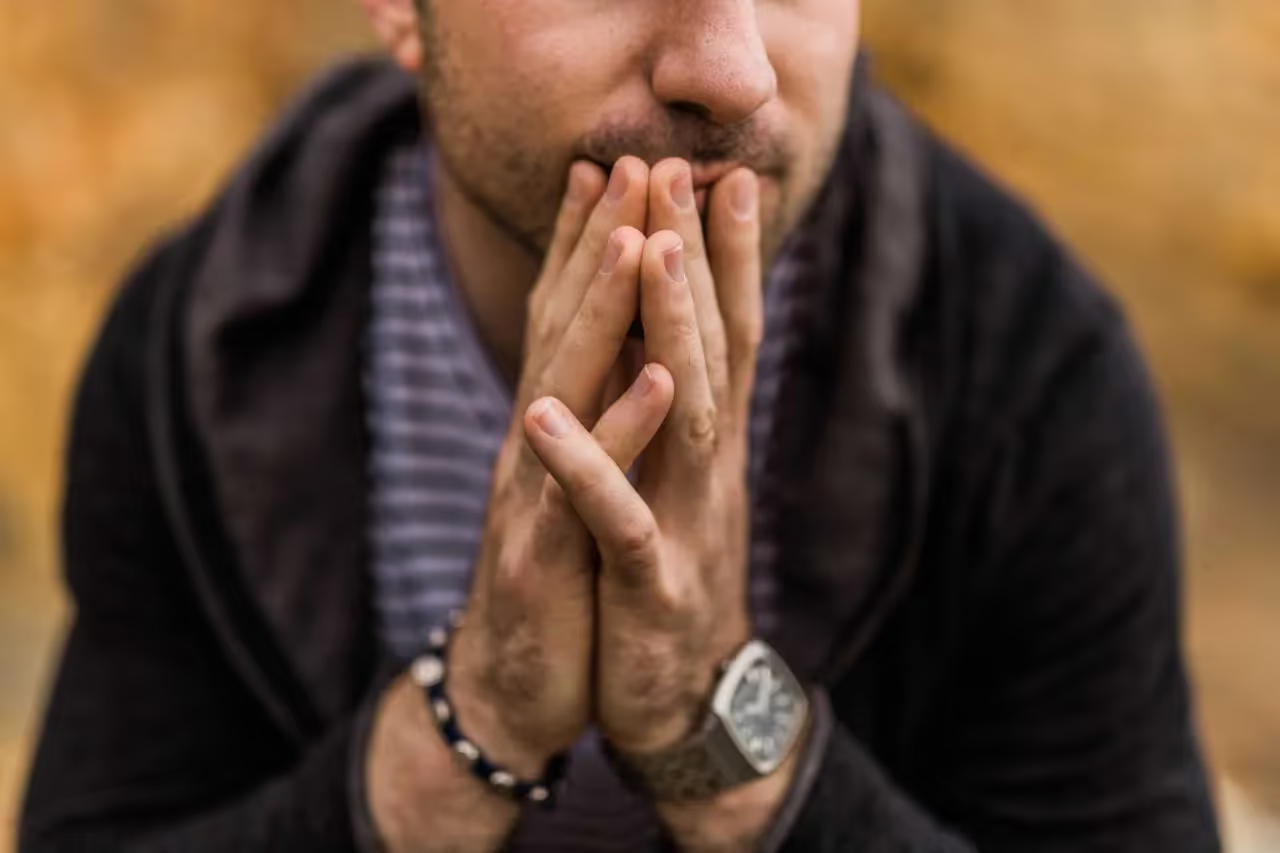Most people hate confrontation, and it's no wonder why.Anxiety levels rise, the heart races, and thoughts become scattered.It's a recipe for disaster.But...

Most people hate confrontation, and it's no wonder why.
Anxiety levels rise, the heart races, and thoughts become scattered.
It's a recipe for disaster.
But what if there was a way to deal with confrontation anxiety in a more effective way?
In this article, we will explore some tips on how to deal with confrontation anxiety in a more manageable way.
Confrontation anxiety is the fear of conflict or disagreement. It can manifest itself in many different ways, such as avoiding eye contact, engaging in small talk, or feeling nervous when speaking up.
While it is perfectly normal to feel some degree of anxiety in confrontation situations, for some people, the fear can be paralyzing.
If you find yourself avoiding conflict or feeling overwhelming anxiety when faced with a disagreement, there are a few things you can do to help ease your fears.
With time and practice, you can learn to manage your confrontation anxiety and thrive in difficult situations.

Learning how to deal with confrontation anxiety can be a challenge, especially if the source of your anxiety is not immediately obvious.
To effectively address this issue, it is a good idea to identify the triggers that are causing your anxiety to spike.
One potential trigger could be past experiences of difficult interactions, whether it was an argument with a friend or colleague, or a heated exchange with a family member.
Another possible trigger could be situations where you may be judged based on your performance or actions, such as public speaking or team sports.
By identifying these triggers and learning techniques for managing them, you can gradually begin to build confidence in your ability to handle confrontation and feel more comfortable standing up for yourself when necessary.
With practice and perseverance, you will eventually be able to face any challenging situation with ease and poise.
Learning how to deal with confrontation anxiety can be a daunting task, especially when you're struggling with high levels of stress in your day-to-day life.
But managing your stress levels before, during, and after a confrontation is key if you want to overcome your anxiety and become more confident and assertive in challenging situations.
To start, it's important to set yourself up for success by preparing yourself mentally and physically before any confrontation occurs.
Stress-reducing techniques like exercising regularly, practicing mindfulness, or writing out your thoughts in a journal can help put you in the right frame of mind so that when you face a difficult interaction, your stress levels are not as high and you are better equipped to stay calm and think clearly.
During the confrontation itself, it's important to remember that emotions will arise no matter what.
But rather than letting those feelings take over and cause you to become defensive or lash out at the other person, try to step back from the situation and respond calmly instead.
If you find yourself feeling overwhelmed or starting to panic during the confrontation, take a deep breath and remember that these feelings will pass with time.
Remembering this simple breathing exercise can help ground you and refocus your attention on problem-solving rather than on the negative emotions you are experiencing.
And finally, after the confrontation is over, it's important to take some time for yourself to relax and de-stress.
This can be done by taking a hot bath, going for a walk in nature, or listening to calming music.

f you find that you are struggling to overcome your anxiety on your own, it may be time to seek professional help.
A therapist can provide you with the tools and support you need to work through your emotions and develop healthy coping mechanisms for dealing with confrontation.
In some cases, medication may also be necessary in order to manage your symptoms.
Whatever your needs, there is no shame in reaching out for support if you need it; the most important thing is that you are working towards a healthier and more confident version of yourself.
In addition to seeking professional help, it can also be helpful to connect with supportive friends or family members who can provide you with guidance and encouragement.
These people can serve as a sounding board for your thoughts and feelings and can offer practical advice on how to handle difficult situations.
It can be helpful to have someone to lean on when you're feeling overwhelmed, and knowing that you have a support system in place can give you the strength to face any challenge that comes your way.
The information in this blog post is meant for informational purposes only.
It should not be used as a substitute for official medical advice from a licensed medical professional.
If you need help, please contact a local professional who can help you.
But by using the tips and strategies outlined above, you can
Learning how to deal with confrontation anxiety is a process, and it will take time and effort to overcome your fears.
If you are struggling with anxiety around confronting others, it is important to understand what this anxiety is and how you can manage it effectively.
By following the tips above, you can learn how to cope with confrontation anxiety healthily and productively.
Most importantly, remember that you are not alone in this; there are people who care about you and want to help you through this difficult time.
Reach out for support when you need it, and know that you have the strength to overcome your anxiety.
It's important that you feel comfortable discussing personal matters with your therapist in order to open up and get more out of therapy sessions; therefore finding someone who meets certain criteria like experience level, expertise areas, and personality is key when selecting a therapist who can give meaningful feedback about how best handle issues related to anxiety or other mental health concerns.
Addressing anxiety is crucial because it can significantly impact your quality of life and overall well-being. Left untreated, anxiety can lead to more severe mental health issues, relationship problems, and difficulty functioning in daily life.
Ignoring anxiety can exacerbate symptoms and make it more challenging to manage over time. This can result in a negative impact on your personal, professional, and social life, leading to feelings of isolation and even depression.
To reduce your anxiety, you can practice relaxation techniques such as deep breathing, progressive muscle relaxation, guided imagery, and mindfulness practices. Additionally, regular exercise has been found to be beneficial in managing stress and improving mental health.
The duration of anxiety counseling varies for each individual, depending on the severity of their anxiety and their progress in therapy. Our therapists will regularly assess your progress and adjust your treatment plan as needed.
Other activities which have been found helpful in reducing both immediate feelings of anxiousness and long-term anxieties associated with chronic disorders include yoga, journaling, nature walks, art therapy, volunteering, and other low-stress activities. Additionally, developing a healthy lifestyle incorporating adequate sleep, physical activity, and nutritious meals can help reduce overall stress levels.